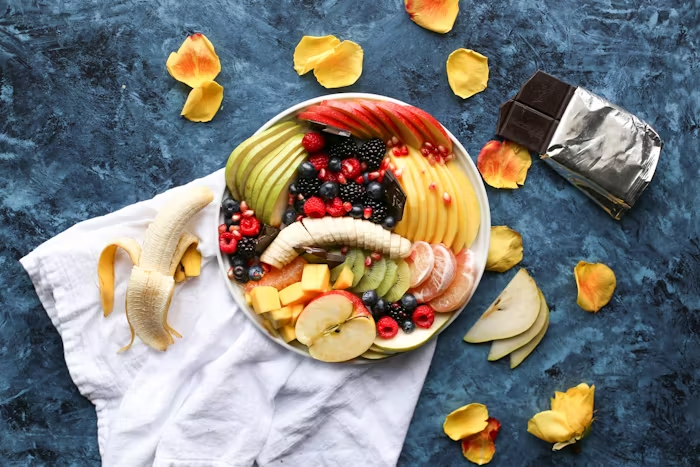Your immune system is your body’s natural defense mechanism against harmful invaders such as viruses, bacteria, and other pathogens. A strong immune system doesn’t just fight off infections — it keeps you feeling energetic, focused, and vibrant.
The great news is you don’t need expensive supplements or harsh treatments to strengthen your immune system. Many natural, simple lifestyle changes and habits can make a world of difference. This guide dives into the most effective ways to naturally boost your immune system, helping you live a healthier and more resilient life.
Why Is a Strong Immune System Important?
Your immune system is a complex network of cells, tissues, and organs working together to protect you from illness. When it’s functioning optimally, you’re less likely to catch common colds, flu, or more serious illnesses.
However, factors like poor diet, stress, lack of sleep, and environmental toxins can weaken your immune system, leaving you more susceptible to illness. That’s why nurturing your immune health is essential — not just during cold and flu season, but year-round.

The Foundations of a Strong Immune System
Before diving into specific natural remedies, let’s address the basics. The pillars of a healthy immune system include:
- Balanced Nutrition
- Regular Physical Activity
- Adequate Sleep
- Stress Management
- Hydration
Each of these elements plays a critical role in keeping your body’s defenses in peak condition. Let’s explore these in detail.
1. Eat a Nutrient-Dense Diet
Your diet is the cornerstone of your immune health. Eating a variety of nutrient-rich foods provides your body with the vitamins and minerals it needs to fight off infections.
Key Immune-Boosting Nutrients
- Vitamin C: Found in citrus fruits, strawberries, bell peppers, and broccoli, this vitamin stimulates the production of white blood cells, your body’s infection-fighting warriors.
- Vitamin D: Essential for immune regulation, you can get this vitamin from sunlight, fortified foods, and fatty fish like salmon.
- Zinc: Boosts immune cell function and can be found in pumpkin seeds, chickpeas, and lean meats.
- Antioxidants: Found in berries, green tea, and spinach, antioxidants protect immune cells from damage caused by free radicals.
Foods to Focus On
- Leafy greens like kale and spinach.
- Garlic and ginger for their anti-inflammatory and antibacterial properties.
- Fermented foods like yogurt, kimchi, and sauerkraut to support gut health (a key player in immunity).
2. Stay Hydrated
Dehydration can weaken your immune system by hindering your body’s ability to transport nutrients and eliminate toxins.
Tips for Staying Hydrated
- Drink at least 8–10 glasses of water per day.
- Add slices of lemon, cucumber, or mint to your water for added flavor and nutrients.
- Limit diuretics like alcohol and caffeine, which can dehydrate your body.
3. Prioritize Sleep
Sleep is when your body repairs and rejuvenates itself, including your immune cells. Chronic sleep deprivation can impair your immune response, making you more susceptible to illnesses.
How to Improve Sleep Quality
- Stick to a consistent sleep schedule.
- Avoid screens and blue light at least an hour before bed.
- Create a calming bedtime routine with activities like reading or meditation.
- Ensure your bedroom is dark, quiet, and cool.
Aim for 7–9 hours of quality sleep each night to keep your immune system strong.
4. Manage Stress Effectively
Chronic stress leads to elevated levels of cortisol, a hormone that suppresses immune function. Learning how to manage stress is crucial for maintaining a strong immune system.
Stress-Reduction Techniques
- Mindfulness Meditation: Regular meditation can lower stress hormones and improve immune health.
- Exercise: Physical activity releases endorphins, which naturally reduce stress.
- Breathing Exercises: Simple deep-breathing techniques can calm your nervous system in minutes.
- Journaling: Writing down your thoughts and feelings can help you process and reduce stress.
5. Exercise Regularly
Moderate, consistent exercise improves circulation, reduces inflammation, and boosts the production of immune cells.
Best Exercises for Immunity
- Brisk walking or jogging for 30 minutes daily.
- Yoga or Pilates to combine movement with stress reduction.
- Strength training to maintain muscle health and reduce inflammation.
- Dancing, swimming, or cycling for a fun way to stay active.
6. Support Your Gut Health
Your gut houses about 70% of your immune system, making it a critical player in immune health.
How to Improve Gut Health
- Eat prebiotic-rich foods like bananas, asparagus, and onions to feed beneficial gut bacteria.
- Include probiotics from yogurt, kefir, and fermented foods.
- Avoid processed foods and excessive sugar, which can harm gut bacteria.
7. Use Natural Immune Boosters
Certain natural remedies have been shown to enhance immune function:
Herbs and Spices
- Echinacea: Popular for reducing the severity and duration of colds.
- Turmeric: Contains curcumin, an anti-inflammatory compound that supports immunity.
- Ginger: Fights inflammation and soothes respiratory infections.
Superfoods
- Manuka Honey: Known for its antibacterial properties, this honey is a great addition to teas or as a natural sweetener.
- Elderberries: High in antioxidants and traditionally used to combat colds and flu.
- Green Tea: Packed with antioxidants like EGCG that enhance immune function.
8. Avoid Immune Suppressors
Certain habits can weaken your immune system. By eliminating or reducing these, you’ll allow your body to function at its best.
What to Avoid
- Smoking: Harms your lungs and reduces your immune response.
- Excessive Alcohol Consumption: Impairs the body’s ability to fight infections.
- High-Sugar Diets: Suppress the immune system for hours after consumption.
- Sedentary Lifestyle: Reduces circulation and weakens your body’s defenses.
9. Get Fresh Air and Sunlight
Spending time outdoors has been linked to better immune function. Sunlight helps your body produce vitamin D, while fresh air can improve oxygen levels and reduce stress.
Tips for Outdoor Time
- Spend at least 15–20 minutes in the sun daily.
- Take a nature walk or practice forest bathing for a mental and physical boost.
- Open windows to let in fresh air, even during colder months.
10. Stay Connected
Strong social connections can improve mental health, reduce stress, and strengthen your immune system. Studies show that people with healthy relationships are less likely to get sick than those who are socially isolated.
How to Build Connections
- Spend quality time with friends and family.
- Join community groups or online forums with shared interests.
- Practice gratitude to foster stronger relationships.
Signs Your Immune System Needs Support
If you frequently experience the following, it may be time to focus on boosting your immunity:
- Frequent colds or infections.
- Persistent fatigue or low energy.
- Slow-healing wounds.
- Digestive issues or gut discomfort.
Boosting your immune system naturally doesn’t require drastic changes. By making small, consistent improvements in your diet, sleep, stress management, and physical activity, you can significantly enhance your body’s natural defenses.
Remember, a strong immune system is built over time. Stay committed to these healthy habits, and you’ll reap the benefits of better health, resilience, and vitality.














